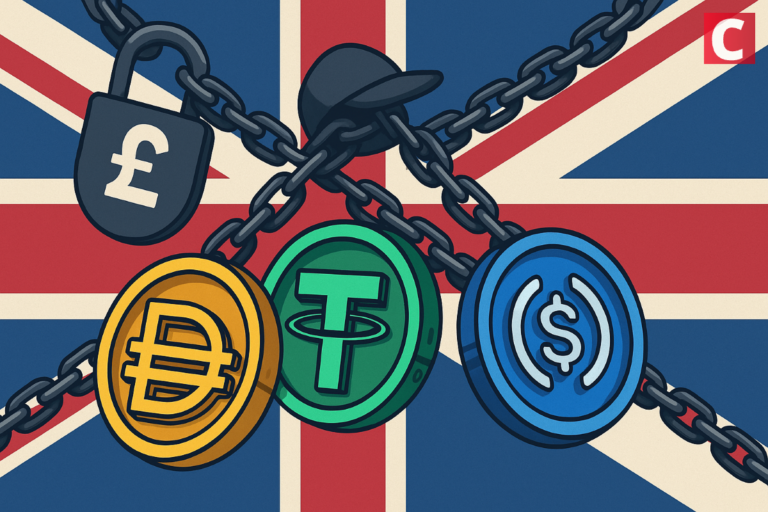When people hold lots of stablecoins, it could hurt traditional banks. The UK’s BoE wants to limit how much one person or company can hold.
The Bank of England wants to limit how many stablecoin tokens a person or business can hold with its new proposal.
For individuals, the cap is between £10,000 and £20,000; for businesses, £10 million, according to a Financial Times report on Sept. 15.
The main reason, as the central bank says, is that the watchdog is worried stablecoins could cause bank deposit outflows. It simply means that if many people shift money from banks into stablecoins, banks might lose money and not lend enough.
If the BoE’s proposal gets the green light, people might not be able to hold larger amounts of stablecoins, which changes how people use them.
While it might help banks keep their authority and prevent mass outflows, the regulation will potentially hinder innovation and block mainstream crypto adoption.
The overall impact on the industry could be significant since the UK is the 11th top country on the 2025 Global Crypto Adoption Index by Chainalysis.
“Imposing caps on stablecoins is bad for UK savers, bad for the City and bad for sterling,” Tom Duff Gordon, vice-president of international policy at Coinbase exchange, told FT. “No other major jurisdiction has deemed it necessary to impose caps.”
Critics have been pointing out the anonymity of stablecoins and the risk of criminal activities. However, the new system will also lead to reduced privacy, as Simon Jennings, executive director of the UK Cryptoasset Business Council, believes that “enforcing caps would require a costly, complex new system, such as digital IDs or constant co-ordination between wallets.”
The BoE says this might only be a temporary measure, but it still creates uncertainty for companies planning long‑term.
The global stablecoin market is huge and growing. According to CoinMarketCap data, the total stablecoin market cap has reached $302 billion. Consequently, the limitations in the UK will affect many people since stablecoins are a key part of financial innovation now.
next